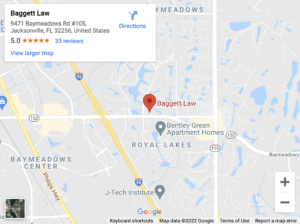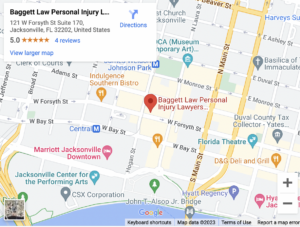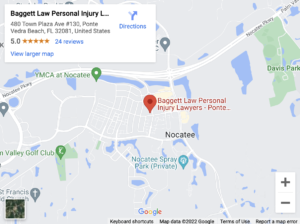
Bad faith is a legal term that refers to fraud or dishonesty in a transaction. The term describes a variety of dishonest or fraudulent acts, including breach of contract, failing to use fair dealing standards, and untrustworthy performance of duties.
An insurance policy is a contract. If an insurance company breaches the contract or fails to use good faith standards while handling claims, the company could be guilty of bad faith insurance practices. In some cases, the insurance company could be liable for damages because it acted in bad faith.
Can an Insurance Company Deny My Claim?

Insurance companies investigate claims to determine if their insured is liable for damages. They also determine if the insurance policy covers the claim. The companies must act in good faith when investigating and handling claims.
However, acting in good faith does not mean they must pay every claim. There could be instances where the insurance company could legitimately deny the claim. Examples of why an insurance company might deny a claim include the following:
- The insured was not responsible for causing the accident or injury
- The insurance policy does not cover the cause of the injury or the person who caused the injury
- The insured failed to pay the premiums
- The claimant failed to submit an insurance claim before the deadline
- There is a dispute regarding liability for the claim
- The claimant does not provide the required information or documentation to verify the claim or damages
An insurance company could also legitimately delay paying a claim in other circumstances not listed here. However, there are actions that the insurance company cannot take. If so, it acts in bad faith and could be liable for damages.
What Are Examples of Bad Faith Insurance Practices in Jacksonville, FL?
The Florida Unfair Insurance Trade Practices Act prohibits unfair or deceptive practices or acts. Section 626.9541 of the Act defines deceptive practices or acts prohibited by law. Examples of practices that could be considered bad faith include, but are not limited to:
- An insurance company fails to acknowledge receipt of a claim
- The company does not investigate a claim promptly
- Denies requests for information and documentation
- Failing to pay a valid insurance claim
- Denies to pay a claim without providing a valid reason for the denial of a claim
- Engaging in tactics to intentionally delay investigating or paying a claim
- Reducing the value of a claim without explaining the reason for the reduction
- Intentionally undervaluing an insurance claim
- Making false or misleading representations to coerce or intimidate someone to accept a settlement offer
- Requesting unnecessary or overly burdensome documentation and information
- Retroactively canceling an insurance policy after the company receives a claim
- Intentionally misleading someone about the law
- Misleading a person regarding the terms, conditions, or coverage of an insurance policy
- Pressuring or telling a person they do not need to talk with a personal injury lawyer
You could be entitled to compensation if the insurance company’s actions cause damages. The claim could involve your insurance company or the insurance company of a party responsible for your personal injury or accident.
What Do I Have To Prove To Win a Bad Faith Claim in Florida?
Bad faith insurance claims can apply to all types of insurance claims, including:
- Automobile insurance
- Homeowner’s insurance
- Property insurance
- Health insurance
- Boat insurance
- Business and commercial business insurance
- Workers’ compensation insurance
- Legal and medical malpractice insurance
As with other negligence claims, you have the burden of proving your case to recover compensation for damages. First, you must prove there was a valid insurance policy in effect at the time of the accident. Second, you must prove that the insurance terms covered the type of claim.
After proving the policy was in place and covered your type of claim, you must prove that you filed a valid, timely claim and cooperated in the claims process. You must also have evidence proving that the insurance company failed to act in good faith and their failure caused your damages.
How Much Can I Receive for a Bad Faith Insurance Claim?
The value of your claim depends on the extent of your damages. The nature of the insurance company’s acts and the amount of time since you filed your claim are also factors in the value of your claim.
The types of damages you could receive for a bad faith claim include:
- The amount of the claim you originally filed
- Interest charges from the time you should have received the funds until now
- Compensation for additional damages caused by the delay in paying the claim
- Court costs and attorney’s fees for the need to file a bad faith claim
- Pain and suffering damages
- Property damage
In some cases, a jury might award punitive damages. Our Jacksonville personal injury lawyers analyze all aspects of your case to ensure we maximize the damages for your bad faith claim.
Call Now for a Free Consultation With Our Jacksonville Bad Faith Claim Lawyers
The best way to know if you have a bad faith insurance claim is to talk with an experienced lawyer. Contact our law office to schedule a free consultation with one of our Jacksonville bad faith claim attorneys. We want to help you hold the insurance company accountable for the damages they caused by acting in bad faith. Give Baggett Law Personal Injury Lawyers a call by dialing (904) 396-1100.




